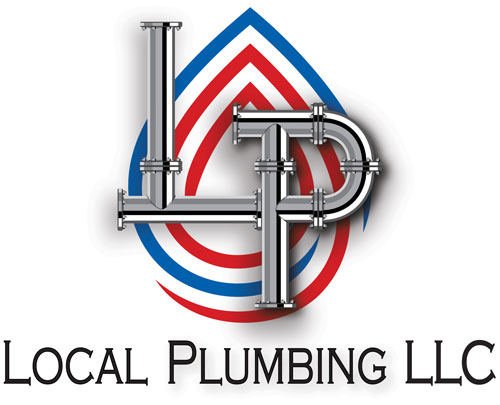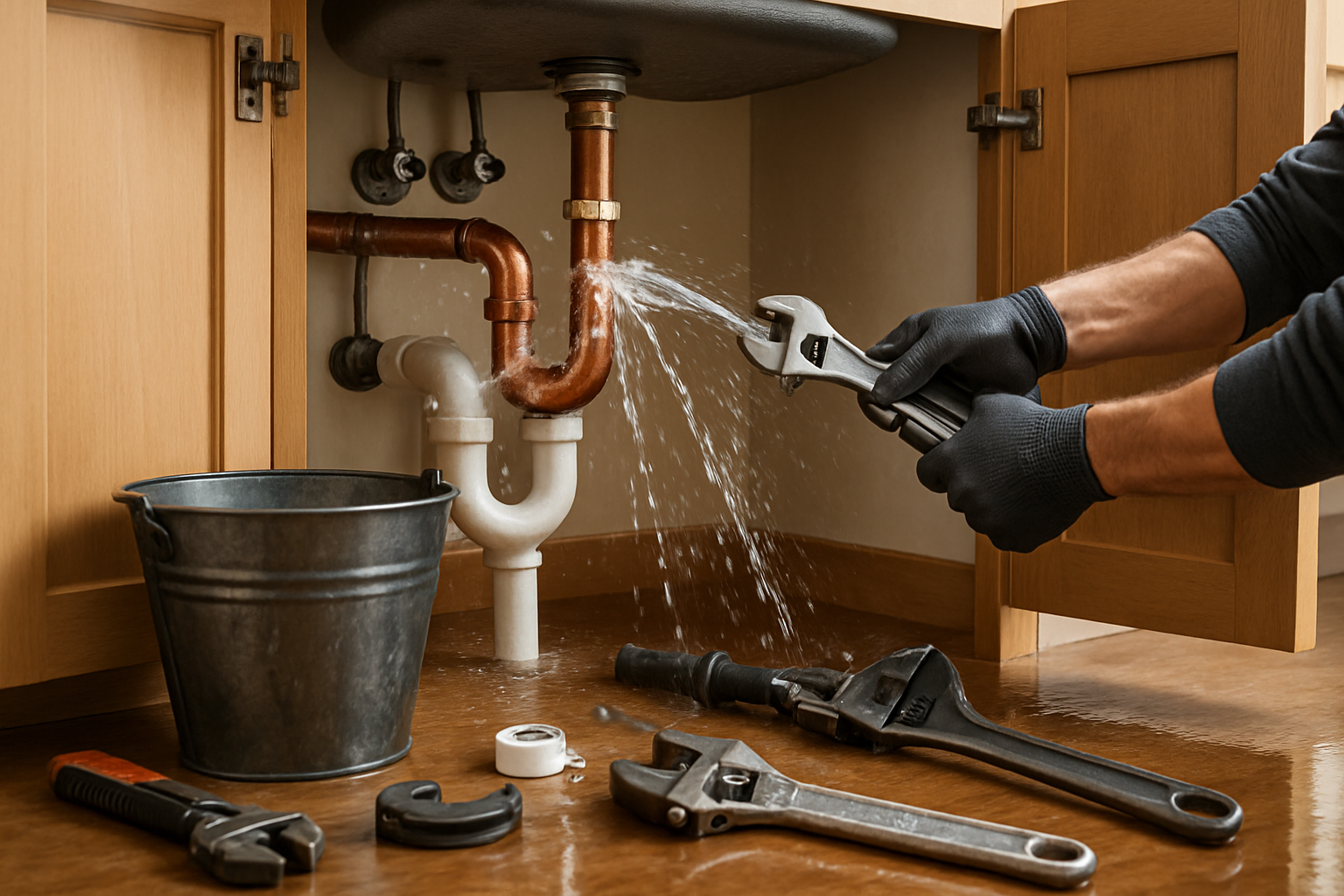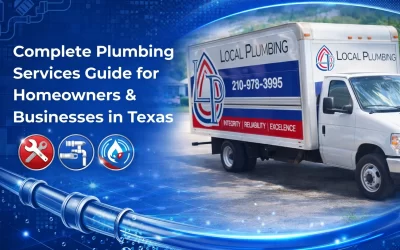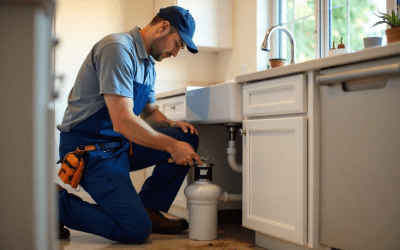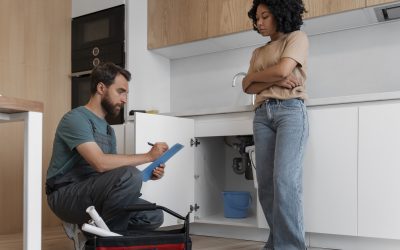Plumbing issues can quickly escalate from minor inconveniences to serious emergencies that threaten your home’s structure, safety, and comfort. Leaks, clogs, or water pressure problems might seem manageable at first, but they often signal underlying damage that requires immediate professional attention. Homeowners often underestimate the urgency of these situations, leading to flooded basements, burst pipes, or even mold growth. Recognizing the warning signs early and knowing when to call a professional plumber can save you time, money, and a major headache down the line.
In this blog, we’ll talk about 11 signs that indicate urgent plumbing trouble, what could happen if you ignore them, and what you can do while waiting for professional help.
11 Warning Signs You Need to Call a Plumber Immediately
1. Burst Pipes
A burst pipe can release gallons of water in minutes, flooding your home and damaging walls, flooring, and furniture. It’s most common during freezing temperatures, but can also result from corrosion or high water pressure. A sudden drop in water pressure or an unexpected popping sound could mean a pipe has burst. Turn off your main water supply right away and get professional help.
2. Sewer Line Backup
Sewage backups are among the most hazardous plumbing problems, bringing foul odors, potential water damage, and health concerns. Watch for red flags like gurgling toilets, recurring clogs, or sewage smells near your drains. If wastewater begins surfacing in sinks or tubs, it signals a serious system failure that requires urgent action to prevent contamination and further damage.
3. No Water at All
When no water comes out of any tap in your home, it’s a clear indication that something’s wrong inside your plumbing system. This could stem from a major leak, a severe blockage, or an issue with the main line entering your house. A licensed plumber can quickly locate the problem and restore your water supply before further damage occurs.
4. Overflowing Toilet
When a toilet overflows without warning and refuses to drain, the problem may go beyond a simple clog. It could signal a deeper issue within the drainage system or sewer line. Leaving it unresolved increases the risk of contamination and water damage to surrounding areas.
5. Hot Water Disruption
Your water heater plays a vital role in daily routines like bathing, dishwashing, and laundry. Leaks, strange noises, or a sudden loss of hot water may indicate sediment buildup, a malfunctioning thermostat, or a failing tank. These issues can quickly escalate into serious hazards such as gas leaks or small explosions, turning a minor inconvenience into a significant safety risk.
6. Frozen Pipes
In colder regions, water inside pipes can freeze and expand, increasing the risk of cracks or even full pipe bursts. If water flow suddenly stops or frost appears on exposed pipes, it’s a sign your system may be in trouble. Avoid quick fixes, rapid thawing can do more harm than good. Instead, use gradual warming methods or consult someone experienced in dealing with frozen plumbing.
7. Sudden Drop in Water Pressure
A dramatic pressure drop usually means there’s a leak, blockage, or burst pipe somewhere in your plumbing system. It could also signal an issue with the water main. Don’t ignore this, it could lead to much bigger problems if left unchecked.
8. Flooding in the Basement
Basement flooding caused by a failed sump pump, burst pipe, or blocked drainage is a clear sign of a serious plumbing issue. If not addressed quickly, the water can damage your home’s foundation, promote mould and mildew, and result in costly repairs. It’s a situation that requires immediate attention to prevent long-term consequences.
9. Strong Odour of Gas or Rotten Eggs
If you use gas water heaters or appliances and smell gas or a rotten egg odour, evacuate the premises and call emergency services before contacting a plumber. The smell often signals a gas leak, creating both plumbing and fire hazards that shouldn’t be ignored.
10. Discoloured or Rusty Water
Brown, yellow, or reddish water from your faucets usually indicates corrosion in your pipes or issues with the water heater. If the problem is confined to your home, act quickly, it may be a sign that your plumbing system is aging and needs immediate inspection.
11. Mould Growth or Water Stains
Unexplained damp spots, ceiling stains, or mold growth may be signs of a hidden leak. Over time, these small issues can turn into big ones, affecting your home’s structure and air quality. Mould thrives in damp environments, and plumbing leaks are often the root cause.
Risks of Ignoring Plumbing Emergencies
Delaying action on emergency plumbing issues can have serious consequences. Here’s what you risk by not addressing the problem promptly:
Structural Damage
Water leaks and flooding can weaken the foundation, walls, and ceilings of your home. Over time, this can cause wood to rot, drywall to crumble, and floors to warp, leading to expensive structural repairs.
Health Hazards
Standing water and sewage can lead to mold growth and bacterial contamination. These not only trigger allergies and respiratory issues but also pose a risk of infections in young children and elderly individuals.
Utility Bill Spikes
Even a small, undetected leak can waste up to 10,000 gallons of water per year. That’s not just bad for the environment, it also drives up your water bills. The longer the leak goes unchecked, the more you’ll pay.
Property Value Decline
Homes with a history of unresolved plumbing problems may lose market value. Potential buyers are often deterred by mold, water damage, and the need for plumbing renovations.
Disrupted Daily Routine
Major plumbing failures can leave you without running water, hot showers, or working toilets, disrupting your day-to-day life until repairs are completed.
Insurance Complications
Homeowners insurance doesn’t always cover damage resulting from unresolved or delayed plumbing repairs. If an insurer determines that the issue was caused by neglect, such as ignoring a leak or failing to maintain your plumbing system, they may reject your claim. That means you could be fully responsible for repair expenses, including water damage, mould removal, or even structural fixes. Addressing plumbing problems promptly not only protects your home but also helps ensure your insurance coverage remains valid.
What to Do Before the Plumber Arrives
Once you’ve identified a plumbing emergency, acting quickly can minimize damage. Here’s what to do while waiting for help:
1. Shut Off the Water Supply
Locate and turn off the main water valve. This is usually found near the water meter, in the basement, or outside your home. For localized issues (like a toilet or sink), turn off the nearest supply valve instead.
2. Turn Off Water Heater
If you’re dealing with hot water issues or leaks, it’s wise to shut off your water heater to prevent pressure buildup or tank damage. For electric heaters, switch them off at the breaker. For gas units, turn off the gas supply valve.
3. Contain the Leak
Use towels, buckets, or waterproof tape to catch dripping water or plug minor leaks temporarily. Move valuables away from the area and place down tarps or plastic sheets if flooding is present.
4. Avoid DIY Fixes
In an emergency, trying to fix complex plumbing issues yourself can often make things worse. Unless it’s something basic like turning off the water or tightening a loose fitting, wait for professional assistance.
5. Ventilate and Dry the Area
If there’s been water leakage, turn on fans and dehumidifiers to prevent mold growth. Open windows if the weather permits, focusing on damp or flooded spaces to improve ventilation.
Many homeowners hesitate to call a plumber out of concern for cost or inconvenience. But waiting too long often turns small issues into major, expensive problems. If you’re unsure if your situation qualifies as an emergency, it’s always safer to consult a professional to find trusted emergency plumbing support available 24/7.
Conclusion
Spotting a plumbing emergency is only part of the solution; what really matters is how quickly and effectively you respond. Delays can turn a minor issue into a costly disaster, and without the right support, things can spiral fast. When the unexpected happens, and you need expert help without the wait, Local Plumbing LLC is always ready to help you. Led by licensed master plumber Justin Lee, our team brings the skill, urgency, and attention to detail needed to fix the problem and protect your home before it gets worse.
Don’t hesitate to reach out for any of your plumbing service needs. Call us at (210) 978-3995.
